
19 December 2023Banking, Climate Change, Impact Centre, Insurance, Investment, Nature, News, Policy, Pollution & Circular Economy, Social
POPULAR CONTENT

19 December 2023Banking, Climate Change, Impact Centre, Insurance, Investment, Nature, News, Policy, Pollution & Circular Economy, Social

18 November 2012News

19 December 2023Climate Change, News
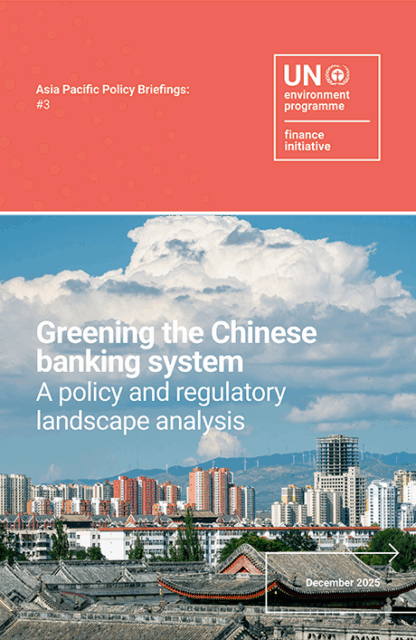
A new UNEP FI policy brief discusses the evolution of the sustainable finance policy and regulatory landscape in China. It is intended as a short and accessible primer for financial sector stakeholders, policymakers and others with interests in China's green finance policies—highlighting the key sustainability-oriented regulation and instruments that China has deployed over the past two decades.

In this new policy brief, UNEP FI and the European Banking Federation (EBF) share seven potential policy levers to help strengthen the investment case for the EU chemical sector and help it attract finance for its sustainable transition.
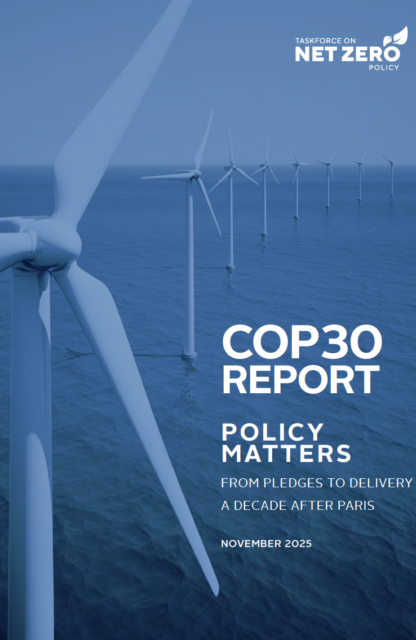
This report by the Taskforce on Net Zero Policy, co-authored by UNEP FI, provides policymakers, regulators, and others with insights and recommendations for developing high integrity corporate and financial policies that drive rapid and substantial reductions in greenhouse gas emissions.
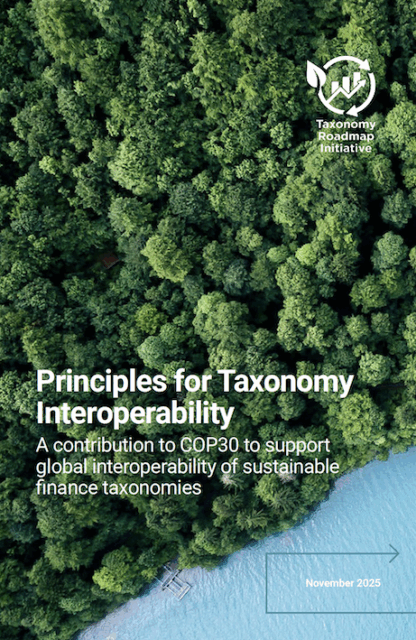
The Principles for Taxonomy Interoperability, developed by partners in the Taxonomy Roadmap Initiative, are intended to help countries and regulators design and implement key policy tools—sustainable finance taxonomies—with a set of guiding tenets to ensure that these taxonomies are usable, credible and comparable across borders.
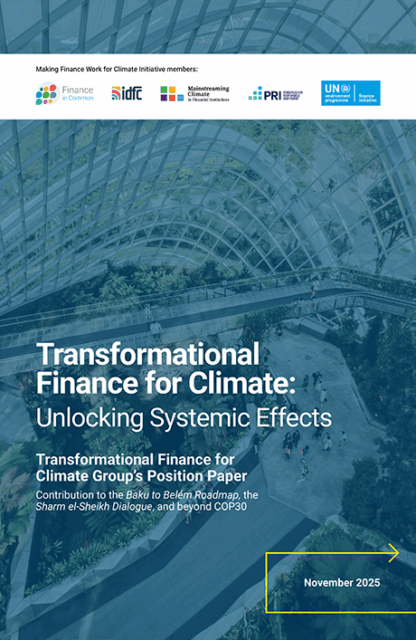
This position paper from the Transformational Finance for Climate Group outlines how public and private actors—from development banks and climate funds to institutional investors and commercial banks—can work together to reorient and mobilize financial flows for transformational impact, scaling high-quality, just, inclusive, and long-term climate finance using a systems-level approach. UNEP FI is a member of the Group.
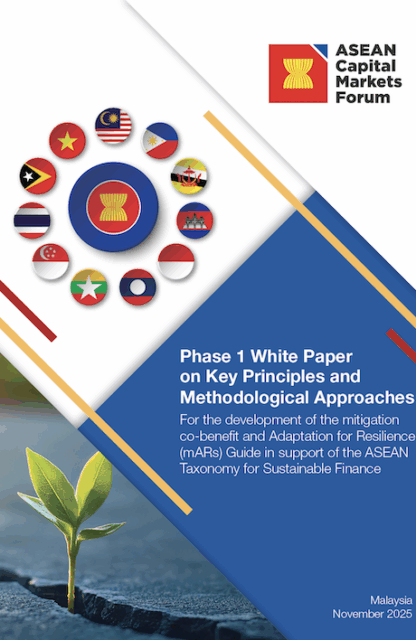
UNEP FI has supported the development of the “Phase 1 White Paper on Key Principles and Methodological Approaches for the development of the mitigation co-benefit and Adaptation for Resilience (mARs) Guide in support of the ASEAN Taxonomy for Sustainable Finance” for the ASEAN Capital Markets Forum (ACMF). It is the first output of the recently announced partnership with ACMF and Sustainable Finance Institute Asia (SFIA) to help the ASEAN region leverage its Sustainable Finance Taxonomy to enhance its usability and functionality for adaptation-specific purposes, with the aim of mobilizing finance.

This UNEP FI policy brief examines how jurisdictions across the Asia-Pacific (APAC) region are incorporating climate-related risks into prudential frameworks, finding trends towards integration within micro- and macroprudential regulation and climate-related disclosures.

The new report, "Guidance on Responsible Policy Engagement," captures best practice and offers recommendations for developing and implementing effective policy engagement strategies, supporting banks in implementing Principles for Responsible Banking (PRB) “Principle 4: Stakeholder Engagement.” The guidance is centred around four pillars of responsible policy engagement: consistency, accountability, transparency, and active engagement.

A new UNEP FI policy brief compares sustainable finance taxonomies across ASEAN Member States, finding increasing alignment with the regional ASEAN Taxonomy in key areas.

UNEP FI and WWF’s Greening Financial Regulation Initiative have jointly authored a new publication, Navigating Nature-related Regulations for Banks: Mapping…